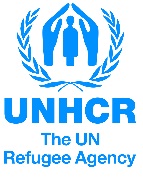Niger Government to speed up asylum procedures for those fleeing conflict and persecution
Niger is well regarded as a country with an ‘open door policy’ in terms of welcoming refugees and asylum seekers who are fleeing conflicts or persecution in their country of origin. Over 54,000 Malian refugees currently enjoy prima facie recognition (which means that they are recognized as refugees on a group basis and do not need to undergo individual refugee status determination procedures) while Nigerian refugees fleeing the conflict in Northern Nigeria enjoy temporary protection status and can still formally apply for refugee status if they so wish.
In addition, there are 121 asylum seekers from a wide range of other countries (even though the majority hails from the Central African Republic) who are currently awaiting decisions on their application for refugee status. Once granted, they would join 366 already recognized (on the basis of individual procedures) refugees from the Democratic Republic of Congo, Chad, the Central African Republic, Ivory Coast, Somalia, Cameroon, Sudan, Libya and other countries as far away as Iran, Iraq and Syria. Most of these refugees live in the nation’s capital Niamey.
The institution responsible for refugee status determination in Niger is the National Eligibility Commission (or in French: Commission Nationale d’Eligibilité, CNE) which brings together representatives of various ministries but also the Human Rights Commission and UNHCR as an observer. The Department for Civil Registry and Refugee matters (or in French: Direction Générale de l’Etat Civil et des Réfugiés, DGECR) in the Ministry of Interior registers and interviews asylum seekers, thus supporting the decision making of the Commission.
UNHCR is working closely with these institutions so as to improve and accelerate the refugee status determination procedures. Here the key issue remains the length of time that applicants must wait for a decision, which currently takes an average of 18 months. A legal reform is underway and should shorten the length of the process, among other improvements. Last week, 11 asylum seekers from the Central African Republic received the news that they have been recognized as refugees in Niger. This secures their stay, entitles them to international protection and gives access to services provided for by the government of Niger, such as education and health care at the same level as nationals.

Asylum seekers and refugees address themselves often to the “One Stop Shop” for urban refugees (or in French: Guichet Unique ) in Niamey, where the government, UNHCR and NGO partners receive and assist them in a single place. Lately, a webpage was launched where asylum seekers and refugees can access information on their rights and services available to them. The government has granted the Guichet Unique a toll free telephone line so that (hopefully soon) asylum seekers and refugees can more conveniently call rather than spending time and money on commuting.
The increasing numbers of migrants passing through Niger might lead to an increase of applications for asylum as well. To be ready for such an eventuality, UNHCR has assured the government of its continued support so that procedures and services remain on a high standard and keep pace with demand.
1 Notes
 ohmijbil likes this
ohmijbil likes this unhcrniger posted this
unhcrniger posted this

